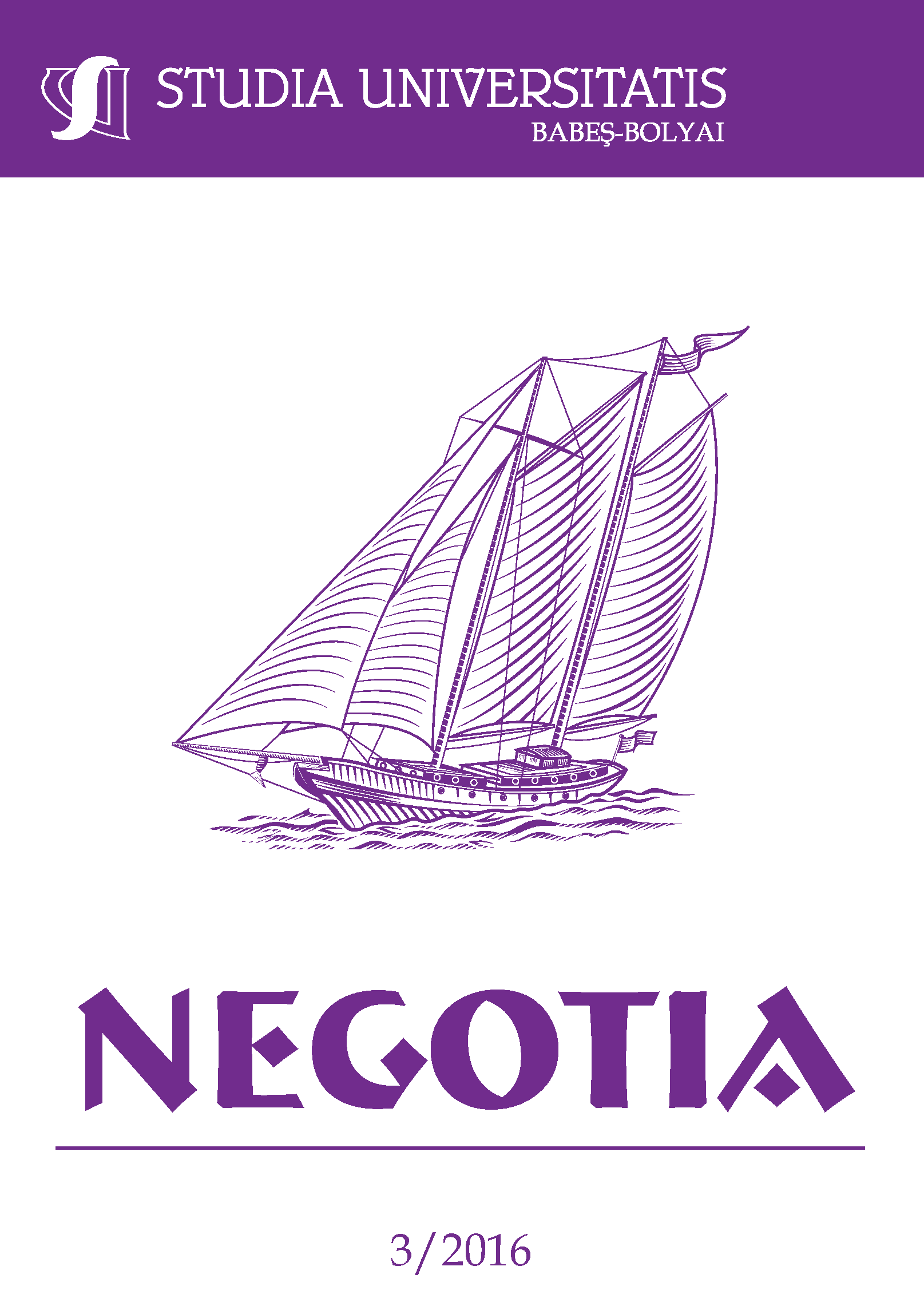RESISTANCE FACTORS TO COMMUNITY PARTICIPATION IN SUSTAINABLE TOURISM DEVELOPMENT IN NORTHERN SUMATRA INDONESIA
Keywords:
community participation, sustainable tourism development, barriers to participation.Abstract
This study aims to examine conceptual and empirical evidence about the perceptions of local community consisting of residents and small and medium entrepreneurs engaged in tourism in Northern Sumatra Indonesia. This study will review, assess, and identify the obstacles that are detrimental to community participation and successful tourism development in a given destination. Community development is part of tourism development of any destination. It has become a priority of relevant authorities to achieve sustainable development goals through tourism development. This review, moreover, will discuss how community participation and development can promote sustainable development of tourism. Discussion has focused on the inhibition factors such as the opportunities for cooperation with successful entrepreneurs; entrepreneurial and job opportunities, entrepreneurship and involvement in promoting of local products. This study investigated local residents as the sampling unit. The data has been analyzed using statistical methods through SPSS. The results depict that community participation in terms of entrepreneurial collaboration among population and product development have significant effect on development of tourism destination. It is recommended that a comprehensive study should be carried out in greater depth.
References
Ambar, T.S. (2004). Pemberdayaan Masyarakat Dalam Pembangunan Pariwisata. ANDI, Yogyakarta.
Amos, N. (1991). Kesadaran Persekitaran Serta hubungannya dengan latar belakang Pendidikan dan Sosial Ekonomi, Analisis Teoritik didasarkan Pada Pendekatan Psikologi. Lemlit IKIP, Jakarta.
Armitage, D. (1995). An Integrative Methodological Framework for Sustainable Environmental Planning and Management. Environmental Management, 19, 469-479.
Britton, S. (1989). Tourism, Dependency and Development: A Mode of Analysis. In T. V. Singh, H. L. Theuns and F. M. Go (Eds.), Towards Appropriate Tourism: The Case of Developing Countries. Frankfurt: Peter Long, pp. 93-116.
Bryman, A. (1989). Research Method and Organizational Studies. Unwin Hyman Ltd., London.
Butler, R.W. (1975). Tourism as an Agent of Social Change, Tourism as a Factor in National Development, Tourism Management Journal, pg. 85-90.
Cevat, T. (2010). Challenges of Sustainable Tourism Development in the Developing World: The Case of Turkey. Tourism Management Journal, 22(3), 289-303.
Conyers, (1991). Participation Community in Tourism Development. Tourism Management Journal, 11(4), 316-354.
David, E. (1993). US Policy for the Future of Tourism. Tourism Management Journal, 14, 396-400.
Dodds, R. (2012). Sustainable Tourism: A Hope or a Necessity? The Case of Tofino, British Colombia, Canada. Journal of Sustainable Development, 5 (5), 54-64.
Elliot, M. (1999). Schaum's Outlines of Theory and Problem. Foot Print Handbooks Ltd.
Erlina, (2008). Metodologi Penelitian Bisnis Untuk Akuntansi Dan Manajemen”, USU Press, Medan.
Franco, S.E, Jorge A.R. (2010). Tourism Destination Image and Motivations: The Spanish Perspective of Mexico. Journal of Travel & Tourism Marketing, 27(4), 349-360.
Gamal, S. (2000). Dasar-Dasar Pariwisata. ANDI, Yogyakarta.
Gibbon, M.L. And Laverack, R.G. (2002). Evaluating Community Capacity, Health and Social Care in Jordan. Journal of Travel Research, Vol. 28.
Jose, Goldemberg (2007). “Energy Choices toward a Sustainable Future”. Environment, Magazine. December. New Zealand.
Gilbert, H.A. (1995). UK Tourism Marketing. Tourism Management Journal, 16(4), 332-323.
Global Culture Institute (2008). Dimensi Sosial Pembangunan Pariwisata Berkelanjutan. Jurnal Pariwisata, ecotourisme.wordpress.com, 1-3, April. UGM Yokyakarta.
Hamid (2002). In Erlina (2008). Metodologi Penelitian Bisnis Untuk Akuntansi Dan Manajemen. USU Press, Medan.
Hunter, J. (1997). Developing a Methodology to Identify the Content of Disciplines in Tourism, In E. Laws (Ed.), The ATTT Tourism Education Handbook, London: Tourism Society (61-62).
Jose A.P.O. (2003). Governmental Responses to Tourism Development: Three Brazilian Case Studies. Tourism Management Journal, 24, 97-110.
Kwan, B., Frankish, J., Quantz, D., Flores, J. (2003). A Synthesis Paper on the Conceptualization and Measurement of Community Capacity in China. Tourism Management, 7, 131-35.
Kurt K. (1963). Tourism as a Factor Economic Development, in Angelina, S. (2010). Jendela Pariwisata. Cetakan Pertama. Kesaint Blanc Jakarta.
Line, N.D. & Runyan, R.C. (2012). Hospitality Marketing Research: Recent Trends and Future Directions. International Journal of Hospitality Management, 31, 477-488.
Mikkelsen (1999), In Gumelar S.S. (2010). Strategi Pengembangan Dan Pengelolaan Resort and Leisure. PT. Gramedia, Jakarta.
Moser, C.A. & Calton, G. (1971), Reprinted (1996). Survey Methods in Social Investigation. Aldershot, Hants: Darmouth, USA.
Myung, E., Mcclaren, A. & Li, L. (2012). Environmentally Related Research in Scholary Hospitality Journals: Current Status and Futures Opportunities. International Journal of Hospitality Management, 31 (4), 1264-1275.
Padin, C. (2012). A Sustainable Tourism Planning Model: Component and Relationship. European Business Review, 24(6), 510-518.
Sands, P. (1995). Principles of International Environmental Law, 1, 11. Norwegia.
Sammeng, A.M. (2000). Konsep Pembangunan Pelancongan Lestari Berasaskan Komuniti Di Jakarta. Horizon Tourism, Dirjenparpostel, 235.
Shunnaq M. (2008). “Community Development Using a Sustainable Tourism Strategy: A Case Study of the Jourdan River Valley Toristway”, International Journal of Tourism Research, Vol. 10, No. 1, Pg. 1-14, Jan-Feb.
Simpson, M.C. (2008). Community Benefit Tourism Initiatives-a Conceptual Oxymoron? Journal of Tourism Management, 29(4), 1-18.
Smith, S.L.J. (1988). Defining Tourism: A Supply-side View. Annals of Tourism Research, 15(2), pp. 179-190.
Sonny, K. (2005). Jendela Pariwisata, in Angelina S. (2010). Cetakan Pertama. Kesaint Blanc Jakarta.
Sroma, C. (2009). Tourism, Culture and Development: Hopes, Dreams And Realities In East Indonesia. Journal Tourism, Culture & Communication, 9, 125-194.
Tyrell, T., I.A. Spaulding (1984). A Survey of Attitudes Toward Tourism Growth In Rhode Island. Hospitality Education and Research Journal, 8(2), 22-33.
Walle, A.H. (1997). Quantitative Tourism Research. Annals of Tourism Research, 21, 524-536.
WSSD. (2002), in Ekubang Deplu. (2002). Deklarasi Johannesburg Pembangunan Berkelanjutan. Deplu, Jakarta.
WTO (2000). Tourism Panorama 2020: Nuevas Prevision, World Tourism Organization, available at:
www.tourism.Gov.on.ca/English/research/pdf/self-guided-workbook.pdf
WTO & EC. (1998). Tourism Economic Report (First Edition), New York.
WT & TC. (1997). Job for The Millenium. Travel & Tourism Journal, 2, 3-7. New York.
Downloads
Published
How to Cite
Issue
Section
License
Copyright (c) 2016 Studia Universitatis Babeș-Bolyai Negotia

This work is licensed under a Creative Commons Attribution-NonCommercial-NoDerivatives 4.0 International License.






